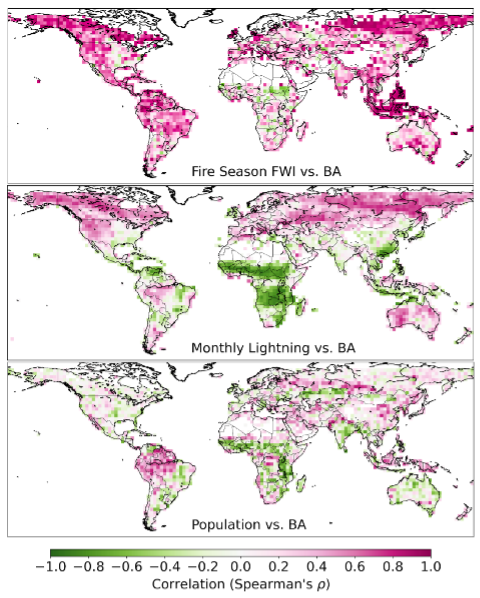As fire events become more intense and frequent, the urgency for effective and proactive fire science grows. The FLARE (Fire science Learning AcRoss the Earth System) Working Group, consisting of scientists from 14 countries and various disciplines, has produced a white paper to address the complexities of fire science from a holistic perspective. This paper compiles discussions from a workshop - organised by the Surface Ocean-Lower Atmosphere Study (SOLAS) and supported by the European Space Agency-Future Earth Joint Programme, PAGES, and BIOS - held in September 2023 at the Bermuda Institute of Ocean Science, summarising the current state of fire science and identifying future challenges. The document, titled "Igniting Progress: Outcomes from the FLARE workshop and 3 challenges for the future of transdisciplinary Fire Science" is now available for download.
Key highlights
Transdisciplinary collaboration: The FLARE initiative highlights the importance of collaboration across different fields to understand and address the challenges of fire science. This approach is particularly crucial for fire science as it crosses academic disciplines and societal actions, with Earth Observation (EO) playing a significant role.
Three main challenges:
- Net carbon balance of fire: understanding how fire's carbon release, ecological recovery, climate changes, ocean biology, and ice melt interact and affect the Earth's carbon balance.
- Rapid response to wildfire events: developing tools for timely and responsive answers to critical questions during extreme fire events and providing annual reports on key policy and media questions.
- Implications of fire: exploring how fires affect marginalised and underrepresented communities, emphasising Indigenous populations and environmental justice.
Communication and education: The paper notes the need for better communication between scientific disciplines and between science and society to enhance understanding and management of fire-related issues.
Workshop insights: The paper reflects on discussions covering satellite data integration, fieldwork, laboratory experiments, and social science research, with a focus on the contributions of early career researchers (including ESA fellows) and fire managers.

Douglas Hamilton, assistant professor at North Carolina State University and lead researcher of the FLARE working group, says, “If we want to improve the assessment of future fire impacts on people and the planet, we need to start with a better understanding of how climate, land cover changes, and human land management practices drive fire distribution and severity.”
Chantelle Burton from the Met Office UK emphasises, "Wildfires can significantly affect the global carbon cycle. Fires in ecosystems that store large amounts of carbon, such as peatlands, permafrost, and forests, can release vast quantities of CO2 into the atmosphere. Incorporating accurate fire-related carbon fluxes into Earth System Models is crucial for predicting climate outcomes."
Stephen Plummer, who facilitated the workshop, noted the unique gathering of networks of scientists working beyond traditional disciplinary boundaries, stressing the significant contributions of EO in understanding and managing fire impacts.
Access the White Paper
The white paper is available under a CC BY-ND license, allowing users to copy and distribute the material in its unadapted form with appropriate attribution to FLARE. Download the FLARE White Paper here.
The FLARE working group continues its efforts beyond the workshop, with the white paper now accepted for presentation at the ICDC11 conference (11th International Carbon Dioxide Conference). This acceptance underscores the growing research interest in the group's work from the global fire science community.
About FLARE
The Fire science Learning AcRoss the Earth System (FLARE) Working Group was launched after a Future Earth COP27 side event on fire. The group aims to advance fire science through a transdisciplinary approach. By bringing together diverse expertise, FLARE seeks to promote integrated research addressing the complex and interconnected challenges posed by fire in the Earth System.

